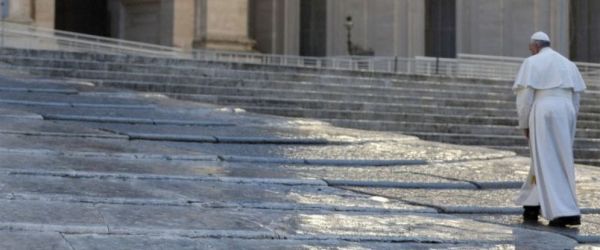The Lord Jesus gives us the fulfilment; he came for this. That man had to come to the brink, where he had to take a decisive leap, where the possibility was presented to stop living for himself, for his own deeds, for his own goods and — precisely because he lacked a full life — to leave everything to follow the Lord. Clearly, in Jesus’ final — immense, wonderful — invitation, there is no proposal of poverty, but of wealth, of the true richness: “You lack one thing; go, sell what you have, and give to the poor, and you will have treasure in heaven; and come, follow me” (Mk 10:21).
Being able to choose between an original and a copy, who would choose the copy? Here is the challenge: finding life’s original, not the copy. Jesus does not offer surrogates, but true life, true love, true richness! How will young people be able to follow us in faith if they do not see us choose the original, if they see us adjusting to half measures? It is awful to find half-measure Christians, — allow me the word — ‘dwarf’ Christians; they grow to a certain height and no more; Christians with a miniaturized, closed heart. It is awful to find this. We need the example of someone who invites me to a ‘beyond’, a ‘plus’, to grow a little. Saint Ignatius called it the ‘magis’, “the fire, the fervour of action that rouses us from slumber”.
The path of what is lacking passes through what there is. Jesus did not come to abolish the Law nor the Prophets, but to fulfil. We must start from reality in order to take the leap into ‘what we lack’. We must scrutinize the ordinary in order to open ourselves to the extraordinary.
[Pope Francis, General Audience 13 June 2018]












